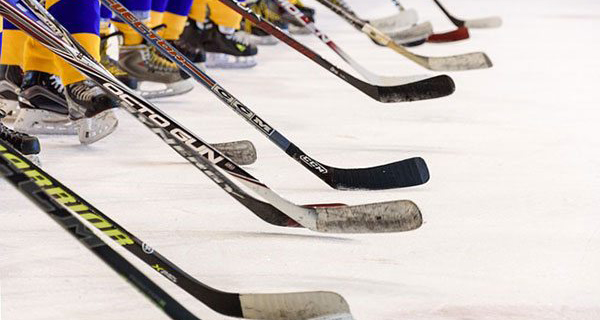 The emergence of dynamic young Canadian teams has been a refreshing aspect of this year’s Stanley Cup playoffs. The Toronto Maple Leafs, Edmonton Oilers and Calgary Flames are chock full of skilled, speedy phenoms, and these enthusiastic squads are giving fits to the favourites in this year’s spring season.
The emergence of dynamic young Canadian teams has been a refreshing aspect of this year’s Stanley Cup playoffs. The Toronto Maple Leafs, Edmonton Oilers and Calgary Flames are chock full of skilled, speedy phenoms, and these enthusiastic squads are giving fits to the favourites in this year’s spring season.
Seeing Connor McDavid, Auston Matthews and Johnny Gaudreau wheel through their opponents’ defences reminds us why hockey can be a great game when it’s played at the highest level. Giving their all to win.
But that’s not the way these players arrived in the good graces of fans in Edmonton, Toronto and Calgary. Frankly, it took (in the cases the Leafs and Oilers) lame efforts for the better part of a decade to win the right to draft McDavid and Matthews. The Flames, while not as bad, also had to plumb the depths for a while to draft Gaudreau, Sean Monahan and Sam Bennett.
Some call it tanking. Others call it taking the foot off the pedal. And, in some really dire cases, it’s called losing on purpose. And that, of course, is a corruption of competition. When winning is secondary to manipulating the draft order, you’re cheating your customers. And the National Hockey League does it every year as poor teams hope that a high draft pick will deliver a McDavid or Matthews to turn around their fate.
The tradition goes back to when Pittsburgh, Washington and Los Angeles were tire fires for sustained periods and earned the rights to Sidney Crosby, Evgeni Malkin, Alex Ovechkin and Anze Kopitar.
The NHL brought in its draft lottery to deny the worst team an automatic first pick overall, but the pick rarely goes to any but one of the three worst clubs.
Still, for all their efforts at promoting the draft lottery, the NHL runs a tanking festival each year. Why wouldn’t you take a knee if you were a failing franchise? Picking in the middle of the draft will never get you a rainmaker. Some excellent players occasionally fall past the top 10 in the draft (Gaudreau made it to the fourth round), but the elite prospects are so throughly scouted in North America and Europe that there are no mystery shoppers out there.
Teams that actually try to make the playoffs or just miss are spinning their wheels. Everyone admires Detroit’s 26 straight years in the postseason but not one wants it if it doesn’t mean Stanley Cups. So how can the NHL (and the other lottery leagues like the National Basketball Association) avoid the farce of tanking and not disturb the traditional structure of their season?
Simple. Continue (in the case of the NHL and NBA) the 82-game schedules. After 72 games, declare the 16 teams that will be in the playoffs. Have them play out the rest of the season to determine the final playoff positions. Proceed with the post-season as usual.
The lower 14 (about to be 15 in the NHL) teams that don’t make the playoffs also play out the remaining 10 games. But instead of starting inferior goalies and putting players on injured reserve to tank the season, turn the equation upside down. Have those teams play the final 10 games to determine the draft order – by winning.
The best team in the final 10 games wins the top draft pick and so on, until the team with the worst record in the final 10 games gets the 15th draft pick. After that, the playoff teams’ draft positions are decided in the same manner as now.
In other words, reward success and punish poor management by making the final part of the season actually mean something. Imagine the tension coming down the stretch as teams that ordinarily would have little to excite their fans get to cheer winning – not losing – to get McDavid or Matthews.
The message would be clear: winning matters.
What a refreshing concept that would be. Promote excellence. Punish incompetence.
And if that doesn’t work, try relegation!
Bruce Dowbiggin @dowbboy.is the host of the podcast The Full Count with Bruce Dowbiggin on anticanetwork.com. He’s also a regular contributor three-times-a-week to Sirius XM Canada Talks Ch. 167. A two-time winner of the Gemini Award as Canada’s top television sports broadcaster, he is also the best-selling author of seven books. His website is Not The Public Broadcaster.
The views, opinions and positions expressed by columnists and contributors are the author’s alone. They do not inherently or expressly reflect the views, opinions and/or positions of our publication.

